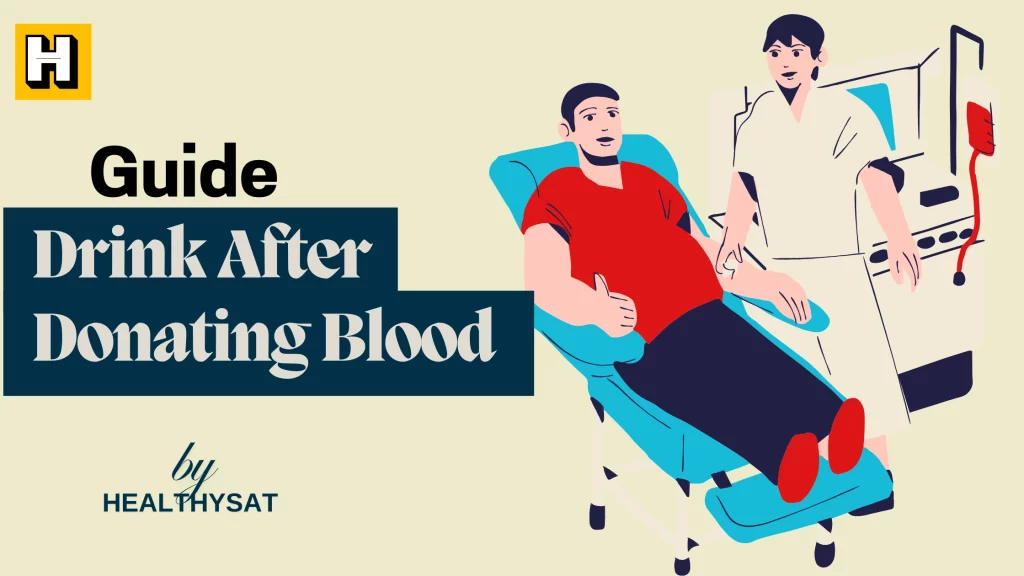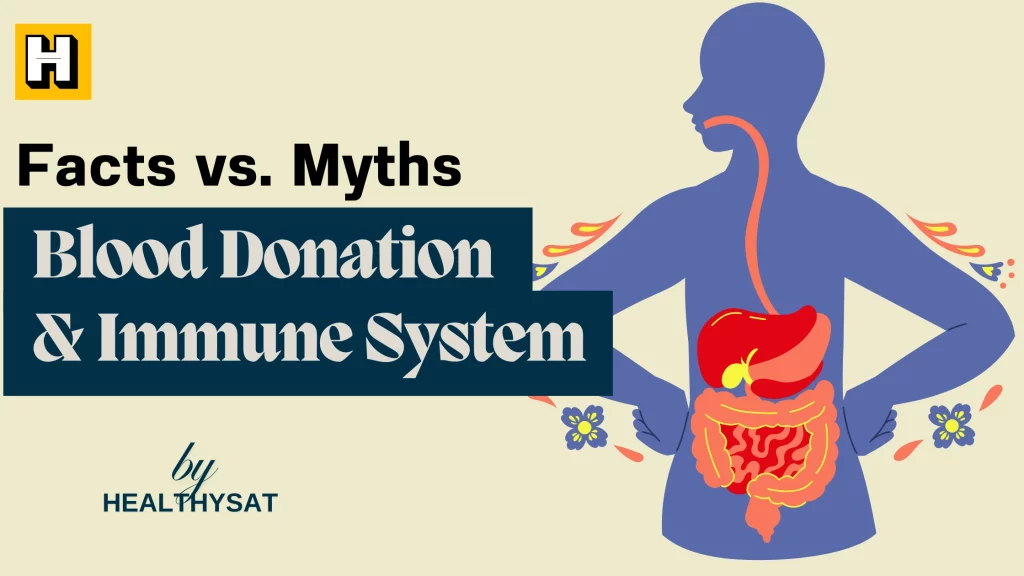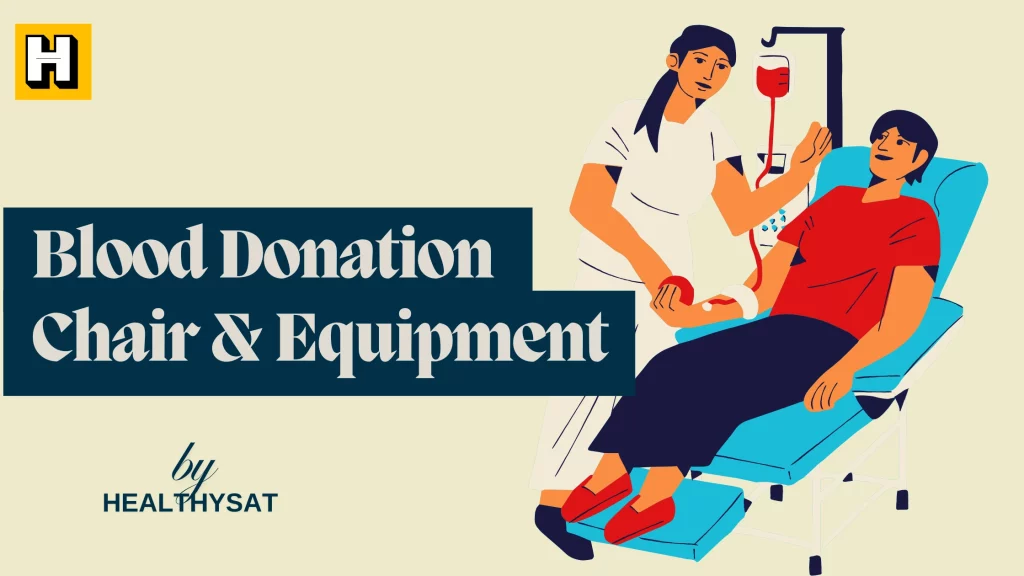Can you drink after donating plasma? This question comes up often among donors who seek to know how to take care of themselves after the donation. The short answer is yes, but with important qualifications.
It’s important to hydrate after a plasma donation. However, there a few liquids you should avoid and timing is important when it comes to alcohol. Post-donation care is essential to ensure a smooth recovery and maintain health for further donations.
After a donation, your body requires special care to replace the fluids and nutrients you lost. Blood donation and plasma donation recommendations are similar but different in some important ways.
After donating blood or plasma, your body needs specific help to replenish fluids and nutrients lost. Recommendations for whole blood and plasma donation are similar but with some differences.
Because the treatment returns your red blood cells to your body, plasma donation is different from whole blood donation. But you do lose a lot of fluid volume and protein, so it is important to replace these.
You need to hydrate well and eat well after donating plasma so that your body builds back those fluids and proteins and limits some side effects like dizziness, fatigue, or dehydrating.
Regardless of whether you’re a first-time donor or a regular one following the post-donation tips will help in the quick recovery. Let’s look at rules to follow post donation with special reference to food and drink items to help you recover fast.
Immediate Post-Donation Hydration
After giving plasma or blood, staying hydrated is the most important thing to do.
You need to refill plasma fluids so whether it is blood or plasma, drinking properly helps recover fast.
After you donate, you usually get juice or water from your blood center staff before you leave. This immediate hydration serves several important purposes:
- Begins replacing lost fluid volume
- Helps stabilize blood pressure
- Provides quick energy via fruit juice sugars
- Reduces risk of lightheadedness when standing
- Initiates the recovery process
After donating plasma, experts suggest drinking at least 16 ounces of liquid. After this hydration, you should drink more fluid during the rest of the day. Drink 4-6 cups (32-48 ounces) of water over the next 24 hours, in addition to what you normally drink.
The best choices for hydration immediately after donation include:
- Water (it’s often better tolerated at room temperature than cold)
- Juice is fruit flavored and high in natural sugar
- Sports drinks containing electrolytes
- Coconut water for natural electrolyte replacement
- Caffeine-free herbal teas
Drinking a lot of water helps with that:
- Faster plasma volume replacement
- Reduced feeling of fatigue
- Lower risk of post-donation dizziness
- Quicker return to normal blood pressure
- Prevention of headaches caused by dehydration
Many donors use a hydration schedule to help them drink the right amount of fluids. Try drinking 1 (8-ounce) glass of water every hour for the first 4 to 6 hours after an infusion.
Listen to your body’s signals during this period. You may need to drink more if you have increased thirst, darker urine, or dry mouth. Don’t wait for these symptoms to drink; proactively hydrating gives you the best results.
Can You Drink Alcohol After Donating Plasma?

Can you consume alcohol after donating plasma? This specific question deserves careful consideration. Alcohol isn’t banned after donating plasma but there are some important cautions.
Most health personnel and blood centres recommend to not have alcohol for a minimum of 4 hours after plasma donation. In case of whole blood donation, it is recommended to avoid alcohol for 24 hours owing to red blood cell loss. These guidelines exist for several key reasons:
- Drinks that dehydrate you also counter your efforts to rehydrate
- After donating, alcohol can intensify any lightheadedness or dizziness
- The amount of blood in your system is decreased; alcohol could hit you more than usual
- Alcohol dilates blood vessels which may further lower blood pressure
- Your body should be spending energy on healing, not dealing with alcohol
If you must drink after the recommended time period, follow these rules if you do:
- Begin with one standard drink to see how you respond
- Make sure you’ve saturated yourself with non-alcoholic drinks first
- Consume alcohol with food to slow absorption
- Choose a light beer or diluted wine spritzers
- Drink extra water between alcoholic beverages
- If your dizziness worsens or you feel unwell, stop
Many factors can affect how alcohol makes you feel after donating plasma:
- Your body size and composition
- Previous donation experiences
- Your typical alcohol tolerance
- How well you’ve rehydrated
- Whether you’ve eaten substantial food
- Medications you may be taking
- The ambient temperature and your activity level
After donating plasma, many people lose their drunkenness faster than usual, even after the suggested waiting period. This means that you may feel the effects of alcohol more intensely than you normally would, even with your usual amount.
Most importantly, listen to your body. If you are feeling unusually tired, lightheaded, or dehydrated after donating, it might be best to wait until you feel better to enjoy an alcoholic drink, even if it’s been a long time since you donated.
Optimal Food Choices After Donation
The food you consume after plasma donation plays a vital role in your recovery. The proper food gives you back the vitamins and minerals you lost during your donation and gives you energy to make these things fresh again.
After blood donation, blood centres often provide you with something like cookies or crackers. These quick carbohydrates serve an important purpose:
- Provide fast energy to help stabilize blood sugar
- Begin replacing glycogen stores
- Reduce risk of lightheadedness
These carbohydrates can help prevent nausea that some donors experience. If you would like to eat more after the donation, view these good options:
- Protein-rich foods that help rebuild plasma proteins
- Food with iron (important after whole blood donation)
- Complex carbohydrates for sustained energy
- Vitamin C-rich foods to enhance iron absorption
- Folate-containing foods to support cell production
Excellent post-donation meal options include:
- Lean meat with whole grain sides (chicken with brown rice)
- Bean-based dishes (lentil soup, hummus with vegetables)
- Iron-fortified cereals with fruit
- Spinach salads with citrus dressing and protein
- Eggs with whole grain toast and orange juice
- Seafood with leafy greens and whole grains
Beneficial foods you should consume post-donation:
- Greek yogurt (protein and calcium)
- Nuts and seeds (protein and healthy fats)
- Legumes (protein and fiber)
- Avocados (healthy fats and potassium)
- Eggs (complete protein and nutrients)
- Quinoa (protein and complex carbohydrates)
Timing your meals properly also supports recovery. Consume a decent portion of food after 2-3 hour of donation which contains protein and complex carbohydrates. Having small, nutrient-rich snacks between meals can help you maintain your energy levels.
Some donors feel less hungry right after giving blood as a result of eating a heavier meal. If this is the case, begin with smaller amounts of nutrient-rich foods, and eat more frequently throughout the day rather than forcing large meals.
Stay away from very greasy, highly processed foods after donation because this can make you feel sluggish and won’t provide your body with the proper nutrition it needs.
Beverages to Avoid After Donation
After giving plasma/blood, it is important to hydrate but not with just anything. Some drinks can slow down your recovery, so you should limit or avoid them for hours after donation.
Beverages to approach with caution after donation include:
- Alcoholic drinks (as discussed in the previous section)
- Heavily caffeinated beverages like energy drinks
- Carbonated sodas, especially those high in sugar
- Very hot beverages that may dilate blood vessels
- Diuretic herbal teas like dandelion or juniper
- Highly acidic juices that might irritate an empty stomach
Caffeine requires special consideration after donation. Although not banned, drinking more coffee, a caffeinated drink, is restricting:
- Caffeine mildly dehydrates people which works against taking fluids
- It may temporarily spike heart rate as your body adapts
- Some individuals develop more sensitivity to caffeine post-donation
- It might not help with the jitters you got from donating
If you’re a regular caffeine drinker and think you might get withdrawal headaches, having a little (like half your normal coffee) is usually fine as long as you drink extra water.
Sugar-heavy beverages present another consideration. A little bit of sugar can give you an energy boost right after the donation but a lot of sugar may cause:
- You might have energy spikes and crashes as your body is already stressed
- Increased thirst that masks proper hydration signals
- Potential digestive discomfort in some donors
Avoid entirely:
- Don’t drink alcohol for at least 4 hours (plasma) or 24 hours (whole blood)
- Very hot drinks that may cause blood dilation
- Strange herbal tea that the effects are not medical related
Instead, choose drinks like water, watered-down juices, electrolyte drinks, or similar at a moderate temperature. These would be safe to consume post surgery and will provide lots of hydration.
Recovery Timeline After Plasma Donation
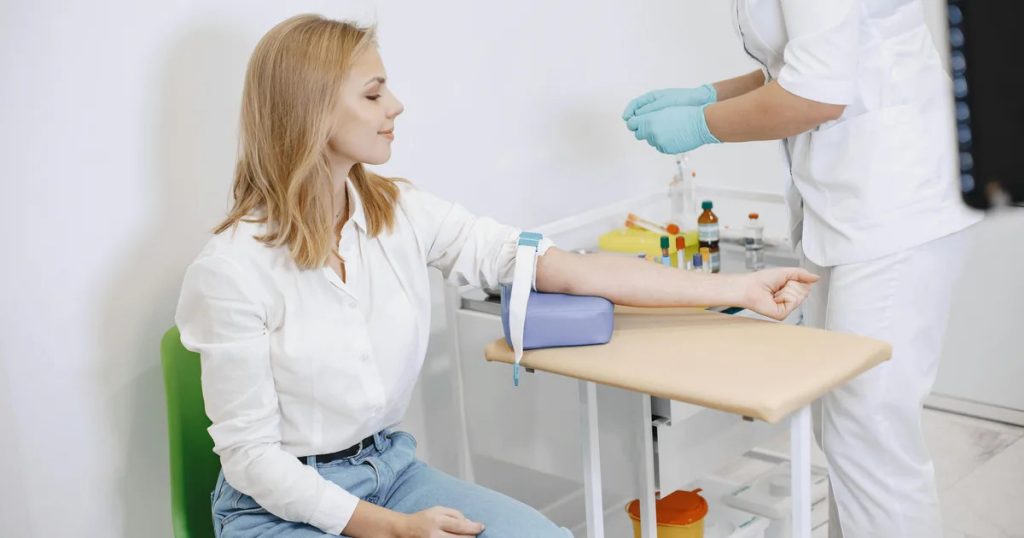
After plasma donation how long does it take to recover? So what is normal? Most donors have similar patterns of recovery though it can vary by person.
Immediately After Donation (0-30 minutes):
- Staff monitors you briefly for any immediate reactions
- Initial fluid and snack consumption begins recovery
- Potential for mild lightheadedness when first standing
- Donation site may have slight discomfort or bruising
First Few Hours (1-4 hours post-donation):
- Focus on hydration and initial nutritional intake
- Mild fatigue may be present for some donors
- Blood pressure gradually returns to normal levels
- Avoid strenuous activities during this period
Same Day (4-12 hours post-donation):
- Continue increased fluid intake
- Plasma volume begins significant restoration
- Energy levels start returning to normal for most donors
- Mild arm soreness may persist at donation site
Next Day (24 hours post-donation):
- Plasma volume substantially restored for most donors
- Energy levels typically return to baseline
- Most donors can resume all normal activities
- Hydration remains important but less critical
Full Recovery (48-72 hours post-donation):
- Plasma proteins continuing to be replenished
- Complete return to normal fluid balance
- Donation site typically healed with minimal or no bruising
- Ready for normal physical activities including exercise
Your red blood cells are returned while you donate plasma, and this shorter recovery timeline is way quicker than whole blood donation. But because plasma proteins are lost during the donation process, the body will need a little time to rebuild them.
Individual recovery timeline may be impacted by the following factors:
- Your overall health and fitness level
- Previous donation experiences
- How well you follow post-donation care recommendations
- Your age and metabolism
- Hydration status before donation
- Rest and activity levels after donating
Most donors feel that they can get back to light activities the same day as donation and continue normal activities including moderate exercise by the next day. It is advisable to delay more intense workouts for 48 hours, especially those using the donation arm to allow the venipuncture site to heal.
Special Considerations for Different Donation Types
What you do after you donate varies a little depending on whether you donated whole blood, plasma, platelets, or double red cells. Knowing the differences will help you care for the specific donation type you gave.
After Plasma Donation:
- Drink extra fluid after donation to prevent dehydration
- It is very important that protein be consumed to reconstitute plasma proteins
- Recovery is typically faster than whole blood donation
- Can you drink after donating plasma? Avoid alcohol for at least 4 hours
- Hydrate then it’s usually fine to resume normal activities the same day
After Whole Blood Donation:
- Replacing iron is important when creating red blood cells
- Don’t have any alcohol for 24 hours as it can reduce oxygen levels in the body
- Allow 24-48 hours before returning to strenuous exercise
- Recovery generally takes longer than plasma donation
- You may feel more tired than normal due to a temporary drop in hemoglobin
After Platelet Donation:
- The anticoagulant will temporarily affect the levels of calcium
- Stay clear of calcium-binding foods like dairy right after (if you felt tingling)
- Recovery is similar to plasma donation in timeline
- Bruising may be more common due to longer needle time
- Giving fluid is still necessary but less meritorious than giving plasma
After Double Red Cell Donation:
- Iron nutrition becomes extremely important
- After this, 72 hours will be needed before a more strenuous time
- During the procedure the fluid volume is replaced, but hydration helps
- Avoid alcohol for at least 24-48 hours
- May experience more fatigue than with other donation types
It remains important to hydrate, eat, and sleep before all donation types. But, depending on what donation type you give, it is good to change your approach.
If you rotate your donation type regularly (for example, donating whole blood sometimes and plasma at other times), be aware of these differences so you can adapt accordingly. The people at your donation center can give advice based on what you donate and your health history.
Managing Common Post-Donation Symptoms
The majority of donors have little to no side effects after donating plasma; knowing how to treat common issues can help you have a good recovery experience. When you know what symptoms to expect and which ones need a check up, you help to ensure your well-being.
Lightheadedness or Dizziness:
- Remain seated or lie down until it passes
- Drink additional fluids with electrolytes
- Consume a salty snack to help raise blood pressure
- Avoid sudden position changes (standing quickly)
- Apply cool compresses to forehead or back of neck
Fatigue:
- Allow for extra rest on donation day
- Consider a short nap if possible
- Maintain good hydration
- Consume small, protein-rich meals
- Reduce physical demands temporarily
- Go to bed slightly earlier on donation night
Bruising at Donation Site:
- Apply cold compresses for the first 24 hours
- Avoid heavy lifting with that arm for 24 hours
- Keep the bandage in place for at least 4 hours
- Avoid aspirin which may increase bruising
- If the bruising is large or hurting, call the donation centre
Arm Soreness:
- Take acetaminophen if needed (avoid aspirin)
- Apply warm compresses after the first 24 hours
- Gentle movement of the arm to maintain circulation
- Avoid strenuous arm exercises for 1-2 days
- Elevate the arm if swelling occurs
Dehydration Signs:
- Increased thirst or dry mouth
- Headache that doesn’t resolve with rest
- Darker urine or decreased urination
- Increased dizziness or fatigue
- Treat by increasing fluid intake immediately
Most of these symptoms get resolved within 24 hours with self-care. However, certain symptoms warrant medical attention:
- Dizziness becomes worse or severe when you rest or drink fluids
- Nausea or vomiting that prevents fluid replacement
- A massive headache that doesn’t go away after taking regular medicine
- Major inflammation, redness, or pain at the donation site
- Unusual shortness of breath
- Persistent symptoms beyond 24 hours
Can I drink if I have these symptoms after donating plasma? If you’re feeling any symptoms after donation other than something very mild then it’s best to avoid alcohol completely. Instead, focus on fluids that aid recovery until symptoms resolve.
Most donation centers provide a contact number in case of questions after donation. Don’t hesitate to use this resource if you’re unsure about any symptoms you’re feeling.
Long-Term Donation Nutrition Strategy
Regularly donating plasma or blood requires aids you in rethinking your nutrition on a broad basis that supports not only your donation process but also that of your system. “Following this, you can still donate without any likely side effects or complications.”
One word quite a few which one as well same the above words these up to twice as were some as well.
- Consistent protein intake to maintain plasma protein levels
- Stay hydrated every day, not just after donation
- Sufficient caloric intake to support energy needs
- Balanced diet that supports overall immune function
- Strategic timing of donations to allow for recovery
Focused on particles that remove iron-containing red cells from the body, plasma donation is not like whole blood donation, so regular donor of any kind should focus on them:
- Protein-rich foods daily (lean meats, beans, nuts, seeds)
- Fruits and vegetables for vitamins and antioxidants
- You should eat enough healthy fats from avocados, olive oil, and fish
- Limited processed foods and added sugars
- Consistent hydration habits
Some regular donors find supplements helpful:
- Multivitamins to ensure micronutrient sufficiency
- Protein supplements if dietary intake is challenging
- Electrolyte supplements for enhanced hydration
- Targeted amino acid supplements that help produce plasma protein
Can you drink after donating plasma on a regular basis? If you time it it correct, then it is fine to drink alcohol once in a while but if you are a regular donor don’t let hold back check your drinking, especially not in the 24-hour period surrounding your donation. An alcohol drink after donating plasma might delay your body’s recovery process.
Many regular donors benefit from having a donate-day diet. This might include:
- A protein-rich breakfast before donation
- Bringing your own electrolyte drink to the center
- A prepared recovery meal ready for after donation
- Scheduled hydration reminders throughout the day
- A nutrient-dense dinner focused on protein and minerals
The nutrition isn’t just for the donation day but for consistent habits to have your body recover quickly and completely between donations.
Hydration Best Practices for Donors
Plasma donors should pay extra attention to their hydration since plasma is 90% water. Before plasma donation, you should drink lots of water to ensure blood circulation.
You must hydrate yourself well 24-48 hours before the donation:
- Increase water intake little by little over the 2 days before donation
- Aim for 8-10 eight-ounce glasses of water the day before
- Drink an extra 16 ounces a few hours before your appointment
- Drink electrolyte fluids to help you retain fluids
- Avoid diuretics like excessive caffeine before donation
During your donation, if permitted by the center:
- Sip water slowly if the donation center allows
- Inform staff if you begin feeling dehydration symptoms
- Think about having an electrolyte pill that’s mixed with water
- Use techniques to ease your stress to avoid vasovagal reactions
After you donate, make excellent hydration choices:
- Drink 16 ounces immediately after donating
- Continue increased fluid intake for 24-48 hours
- Plan regular hydration breaks (set phone reminders if needed)
- Monitor urine color as an indicator of hydration status
- Choose hydrating foods along with beverages
Hydration quality matters as much as quantity. Consider these options:
- Water as your primary hydration source
- Electrolyte beverages for enhanced fluid retention
- Coconut water as a natural alternative
- Diluted fruit juices for hydration plus nutrition
- Herbal teas (non-diuretic varieties) for variety
Is it permitted to drink post donating plasma and stay hydrated? If you decide to drink after waiting the suggested amount of time, drink more water—one full glass of water for every drink is a good rule of thumb.
Many factors determine how much hydration an individual needs including their body size, level of activity, climate they live in and metabolism. Listen to your body; do what works for you and not what others say.
Exercise and Activity Guidelines Post-Donation
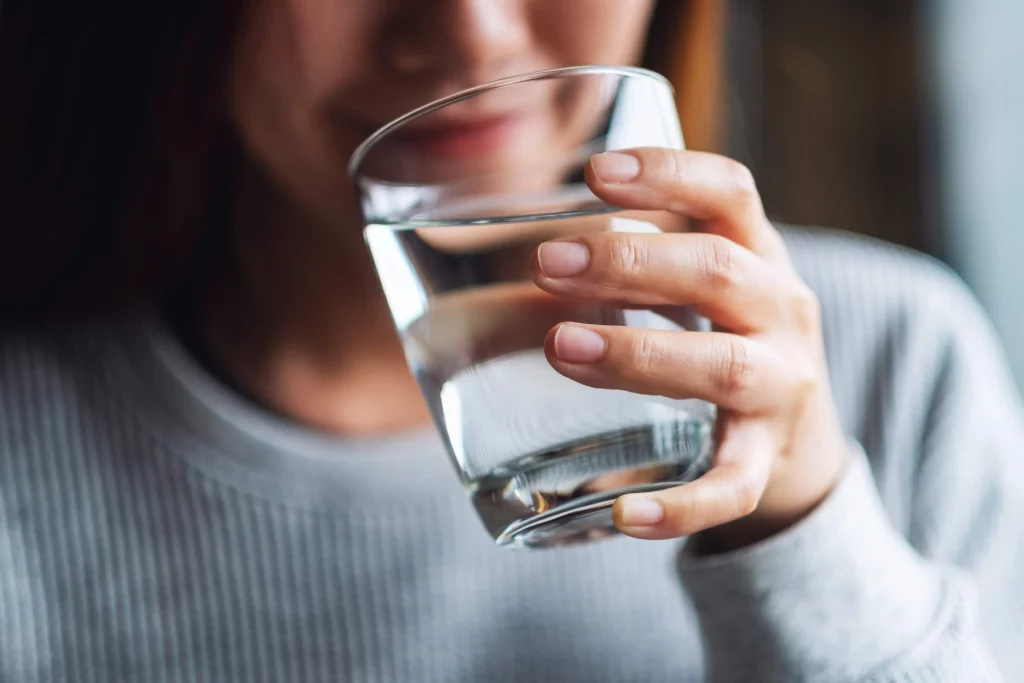
After giving plasma, a little bit of adjustment becomes necessary for physical activity. Even though you can recover faster from plasma donation than from whole blood donation, there are some activity restrictions you must be aware of.
Immediately after donation (same day):
- Avoid heavy lifting, especially with the donation arm
- Avoid vigorous cardio activities—those that rapidly elevate your heart rate
- Postpone activities that involve balance or coordination
- Steer clear of high-risk activities where fainting poses a danger, like climbing or swimming alone
- Be extra careful in hot surroundings that cause more dehydration
The day after donation:
- Resume light to moderate exercise if feeling normal
- Stay extra hydrated during workouts
- Monitor for unusual fatigue or dizziness
- Consider reduced intensity or duration
- Pay attention to heart rate and perceived exertion
For strength training after plasma donation:
- Avoid exercises that will put pressure on the donation arm for 24 hours
- Reduce weights by 10-20% for the first session back
- Include additional warm-up time before lifting
- Consider focusing on lower body the day after donation
- Don’t go for extreme pumps that can stress the puncture site
Cardiovascular exercise recommendations:
- Wait 2-4 hours before light cardio (walking)
- Hold off on moderate cardio (jogging, cycling) until tomorrow
- Postpone intense cardio (HIIT, racing) for 48 hours
- Stay extra hydrated during all cardio activities
- If dizzy, feeling tired or uncomfortable, stop!
Most regular donors establish a workout schedule that is conducive to donation, for example:
- Harder workouts on days furthest from donation
- Lighter activity on donation day and the day after
- Focusing on nutrition and recovery around donation days
- Using donation days as scheduled rest or mobility days
- Scheduling donation appointments for after weekend workouts, not before
If you’re sporty or gym-goer, by letting staff know what you do, they can provide tailored tips to suit the situation.
FAQ About Post-Donation Food and Drink
You can drink after donating plasma but it is advised you wait four hours at least. Limit consumption to just one drink initially, hydrate well first, consume it with food. Your tolerance could be lowered temporarily so be careful.
Try to consume a minimum of 16 ounces right after your donation, and then drink another 32 to 48 ounces (4 to 6 cups) on top of your normal intake in the next 24 hours. Keep an eye on your urine color – pale yellow is a good sign!
The most effective foods are those that contain protein, complex carbohydrates, and some salt. Peanut butter with crackers, hummus with pita, turkey sandwich, or Greek yogurt with granola are good examples. They aid in regulating blood sugar and replacing plasma proteins.
After a single donation, you don’t usually need a supplement, if you eat balanced. But frequent plasma donors may benefit from a multivitamin or protein supplement. Always consult a healthcare provider before starting any new supplement.
Yes, but in moderation. A little caffeine is generally okay, but too much will act as a diuretic, which would counteract your rehydration. If you do consume caffeine, balance it with extra water.
You can go back to your regular eating routine right away, but sticking to healthy foods for 24 hours will help you feel better faster. Unless you experience unusual digestive sensitivities, you don’t have to avoid any food after donating plasma.
Eat foods which are rich in protein like chicken, fish, eggs, dairy, legumes, nuts, seeds. These give your body the amino acids to rebuild plasma protein.
Some donors feel hungrier as their bodies ask for more food to rebuild the plasma. This is normal, and listening to this hunger with nutritious choices is helpful.
Yes, some donors may find that they respond more to certain medications and alcohol after their donation. This is why timing matters with respect to alcohol after donation.
Sit or lie down immediately and notify someone nearby. Elevate your legs if possible and sip water slowly. If these symptoms go on for more than a few minutes, get in touch with the donation center or get medical help.
Conclusion
The answer to the question “can you drink after donating plasma?” is just one part of the complete aftercare that aid’s your recovery. After an appropriate waiting period, moderate alcohol consumption is possible. But the best choice for after giving plasma or blood is hydration, nutrition and rest.
Looking after yourself after donation has many important benefits. It helps you recover quickly, lowers your chances of side effects, and supports your body’s healing process. When you carefully follow the instructions related to hydration and nutrition, activity and alcohol consumption, you set conditions for recovery.
Donating plasma is an important gift that helps people in many different situations. Looking after yourself post donation will keep you healthy and eligible to do this life-saving donation again should you wish to do so. The small change in what you eat and drink is good for you and will enable you to continue your donation journey.
Keep in mind that the response to donation varies from person to person, and individual factors affect your own individual needs. Listen to your body’s signals and alter your aftercare as needed. Should you have any questions about the recovery periods, don’t hesitate to ask blood centre staff.
When you know what to eat and what not to eat after your donation, you can ensure yourself the best donation experience. Realizing this helps facilitate the plasma donation process so it does not feel draining, but rather an effortless yet healthy addition to your lifestyle.


